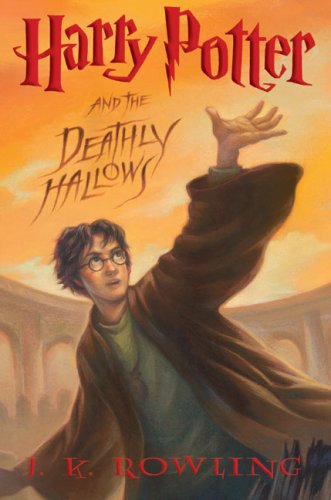
A few months back I did a seven week series on literary elements in J.K. Rowling's Harry Potter series. Undoubtedly the two people who read those posts know I am a fan of hers. Revisiting the series in that way gave me a new appreciation for her ability as a writer. One key feature of successful fantasy is internal consistency. In point of fact it is essential for not only fantasy, but all fiction and most non-fiction. Internal consistency is the concept that keeps character in character, keeps the historical references the same. For example, Dumbledore's nose. From our first introduction to Dumbledore, he is described as having a distinct, crooked, and previously broken nose. His nose carried all the way through to Harry Potter and the Deathly Hallows where we finally learn how his nose was broken. There are two ways an author can maintain this internal consistency. One, the author can do their writing and then as the write new story lines they can simply check their previous writing to make sure they are consistent with what they have written before. Lots of writers do this, but this sometimes does create conflict as new story ideas and direction for a series requires the author to introduce new elements or "magics" (in the sense of 'and a unicorn magically appeared') to justify some novel (in the sense of new) idea. Authors do this when some thing jumps in out of nowhere and introduces some entirely new element to the novel or series in order to resolve a plot conflict.
J.K. Rowling seems to have taken a different approach. She seems to have very meticulously planned the end game of her book and the like a sculptor carefully chipped away the secrets until the consistent story is revealed as a masterpiece. Back to Dumbledore's nose. Not only was Rowling careful to give us good detail about Dumbledore's appearance, but she chose to reveal a clue about the end game right from the beginning. She knew that Albus and his brother Aberforth had fought, and why and what the causes and consequences of that fight had been. We like Harry were surprised to learn these details, but they were essential to Rowling and so she revealed them slowly and carefully.
Another enjoyable consistency was Harry almost swallowing his first snitch. Now, from the perspective of the Albus Dumbledore, he simply took advantage of the fact that Harry had caught his first snitch in his mouth, but from the perspective of the author, it seems likely that she had planned that out. She knew that Harry would need to receive the Resurrection Stone from Dumbledore in a secret way that would allow it to be revealed to Harry in the nick of time. She wrote in him catching the snitch in his mouth so that when Scrimegour passed it on to Harry it wouldn't reveal itself. Now, I suppose it would be possible to argue that Rowling like Dumbledore simply took advantage of her previous cleverness.
Oh, that's right, I thought it would be jolly clever to have Harry catch the snitch in his mouth, now how can I use that?
I tend to give her a bit more credit than that, of course she is always welcome to correct me.
Well, just two more examples of the effective literary elements in Harry Potter.




